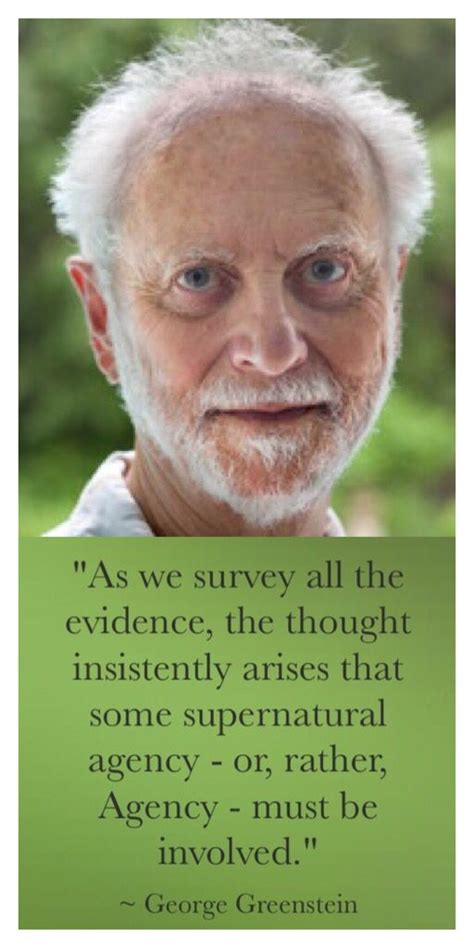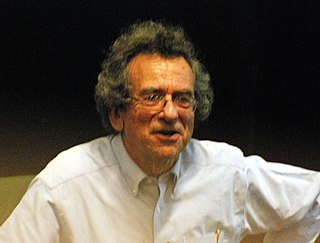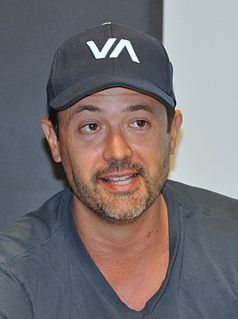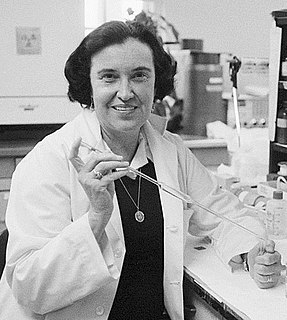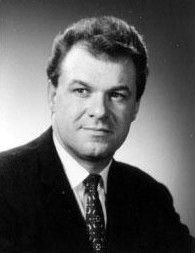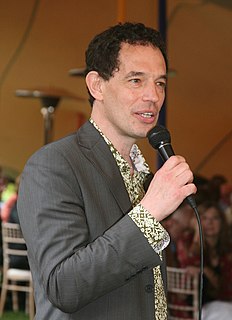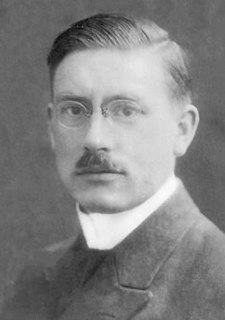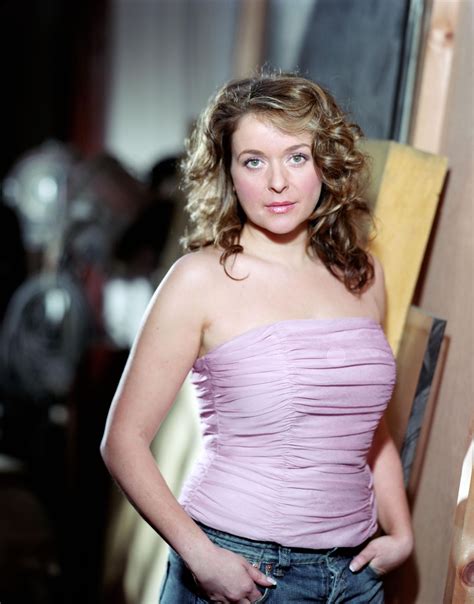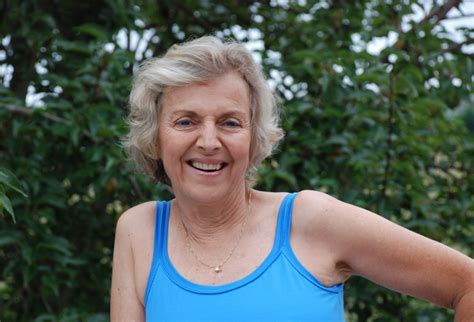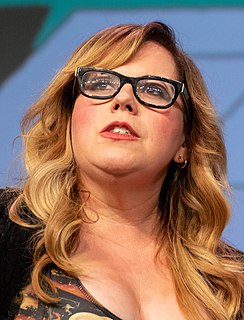Top 1200 Quantum Physics Quotes & Sayings - Page 3
Explore popular Quantum Physics quotes.
Last updated on December 22, 2024.
This book is unique. I know of no other which so artfully tackles two of the greatest mysteries of modern science, quantum mechanics, and consciousness. It has long been suspected that these mysteries are somehow related: the authors’ treatment of this thorny and controversial issue is honest, wide-ranging, and immensely readable. The book contains some of the clearest expositions I have ever seen of the strange and paradoxical nature of the quantum world. Quantum Enigma is a pleasure to read, and I am sure it is destined to become a classic.
I am not talking to you from the point of view of just wishful thinking, or imaginary craziness. I'm talking to you from a deeper basic understanding - quantum physics really begins to point to this discovery, it says that you can't have a universe without mind entering into it, the mind is actually shaping the very thing that is being perceived.
It seems significant that according to quantum physics the indestructibility of energy on one hand which expresses its timeless existence and the appearance of energy in space and time on the other hand correspond to two contradictory (complementary) aspects of reality. In fact, both are always present, but in individual cases the one or the other may be more pronounced.
It is true that physics gives a wonderful training in precise, logical thinking-about physics. It really does depend upon accurate reproducible experiments, and upon framing hypotheses with the greatest possible freedom from dogmatic prejudice. And if these were the really important things in life, physics would be an essential study for everybody.
The thing about physicists is that they tend to think that everything is physics. I don't. That's not what music is to me. You can explain aspects of it in physical terms, including the physics of anatomy: how our bodies move, the torsional moment of inertia, the way you move your body to a beat, the inherent periodicities of the heartbeat, the gait. That's physics, too, I guess - maybe they'd call it biophysics.
Objects obey quantum laws- they spread in possibility following the equation discovered by Erwin Schodinger- but the equation is not codified within the objects. Likewise, appropriate non-linear equations govern the dynamical response of bodies that have gone through the conditioning of quantum memory, although this memory is not recorded in them. Whereas classical memory is recorded in objects like a tape, quantum memory is truly the analog of what the ancients call Akashic memory, memory written in Akasha, Emptiness- nowhere.
I recently forced myself to read a book on quantum physics, just to try and learn something new. I was confused by the middle of the first sentence and it all went downhill from there. The only thing I can remember learning is that a parallel universe can theoretically be contained on the head of a needle. I don't really know what that means, but I am now more careful handling needles.
Philosophy used to be a field that had content, but then natural philosophy became physics, and physics has only continued to make inroads. Every time theres a leap in physics, it encroaches on these areas that philosophers have carefully sequestered away to themselves, and so then you have this natural resentment on the part of philosophers.
I studied physics at Princeton when I was a college student, and my initial intention was to major in it but to also be a writer. What I discovered, because it was a very high-powered physics program with its own fusion reactor, was that to keep up with my fellow students in that program I would need to dedicate myself to math and physics all the time and let writing go. And I couldn't let writing go, so I let physics go and became a science fan and a storyteller.
Clinical psychology tells us arguably that trauma is the ultimate killer.Memories r not recycled like atoms and particles in quantum physics. they can be lost forever. It’s sort of like my past is an unfinished painting and as the artist of that painting,I must fill in all the ugly holes and make it beautiful again.
By far the most important consequence of the conceptual revolution brought about in physics by relativity and quantum theory lies not in such details as that meter sticks shorten when they move or that simultaneous position and momentum have no meaning, but in the insight that we had not been using our minds properly and that it is important to find out how to do so.
It is rather fantastic to realize that the laws of physics can describe how everything was created in a random quantum fluctuation out of nothing, and how over the course of 15 billion years, matter could organize in such complex ways that we have human beings sitting here, talking, doing things intentionally.
What if consciousness is the ground of being? What if the possibilities discovered by quantum physics are the possibilities of consciousness itself? Remember there is already a class of people who think in this way. They are called mystics, and they say it is all God. Finally, a few scientists dared to say that some of the characteristics attributed to God are similar to what we describe as consciousness.
You need virtual reality to understand high level science or high level math. It's very helpful to explain third and fourth dimensional things that people are constantly addressing in quantum physics. But, as soon as you're creating an avatar, and you can live and you can start to feel sensations on VR, that has gone too far.
The biggest questions that always have perplexed me are "Where do I come from?" and "Where am I going?" The "Where do I come from?" question, which I think I largely am answering now, is about what quantum physics teaches us. If you try to find your source, you are not going to find it in a tiny little particle that began with your parents commingling.
Reality has been around since long before you showed up. Don't go calling it nasty names like 'bizarre' or 'incredible'. The universe was propagating complex amplitudes through configuration space for ten billion years before life ever emerged on Earth. Quantum physics is not 'weird'. You are weird.
In physics, one of the most exciting areas is in nanotech. With computers exhausting the power of silicon, Silicon Valley could become a Rust Belt, unless we can find replacements, such as quantum computers and molecular computers. To be a leader in any field, one has to have a great imagination. Sure, we have to know the basics and fundamentals. But beyond that, we have to let our imagination soar.
The incomplete knowledge of a system must be an essential part of every formulation in quantum theory. Quantum theoretical laws must be of a statistical kind. To give an example: we know that the radium atom emits alpha-radiation. Quantum theory can give us an indication of the probability that the alpha-particle will leave the nucleus in unit time, but it cannot predict at what precise point in time the emission will occur, for this is uncertain in principle.
Philosophy used to be a field that had content, but then 'natural philosophy' became physics, and physics has only continued to make inroads. Every time there's a leap in physics, it encroaches on these areas that philosophers have carefully sequestered away to themselves, and so then you have this natural resentment on the part of philosophers.
Quantum healing is healing the bodymind from a quantum level. That means from a level which is not manifest at a sensory level. Our bodies ultimately are fields of information, intelligence and energy. Quantum healing involves a shift in the fields of energy information, so as to bring about a correction in an idea that has gone wrong. So quantum healing involves healing one mode of consciousness, mind, to bring about changes in another mode of consciousness, body.
Quantum physics presents a new and exciting worldview that challenges old concepts, such as deterministic trajectories of motion and causal continuity. If initial conditions do not forever determine an object's motion, if instead, every time we observe, there is a new beginning, then the world is creative at the base level.
When I was in college, I didn't like physics a lot, and I really wasn't very good at physics. And there were a lot of people around me who were really good at physics: I mean, scary good at physics. And they weren't much help to me, because I would say, 'How do you do this?' They'd say, 'Well, the answer's obvious.'
The multiverse as a real physical construct within physics overlapping with a more mystical understanding of many possible worlds - the notion of there being a root down at the quantum level between intention and reality, between consciousness and existence - it's not a matter of trying to explain the mystery of magic away with a pat mechanism of a pseudoscience, it's just a matter of trying to ground it in a domain.
Quantum physics forms the foundation of chemistry, explaining how molecules are held together. It describes how real solids and materials behave and how electricity is conducted through them... It enabled the development of transistors, integrated circuits, lasers, LEDs, digital cameras and all the modern gadgetry that surrounds us.
I founded an educational software company called Knowledge Revolution. We had the first fully animated physics lab on the computer. You could take ropes, pulleys, balls and anything else you'd use in your physics textbook and the program would allow you to build anything you can think of in a physics lab.
Science works because the phenomenon being described can be relied on to remain the same. Even in quantum physics, where phenomena are changed by observation, the way in which observation interferes is regular and falls within a limited range of possibilities. Human culture, however, has the nasty habit of never staying the same for very long.
Non- Euclidean calculus and quantum physics are enough to stretch any brain; and when one mixes them with folklore, and tries to trace a strange background of multi-dimensional reality behind the ghoulish hints of Gothic tales and the wild whispers of the chimney-corner, one can hardly expect to be wholly free from mental tension. (Dreams In The Witch-House)
